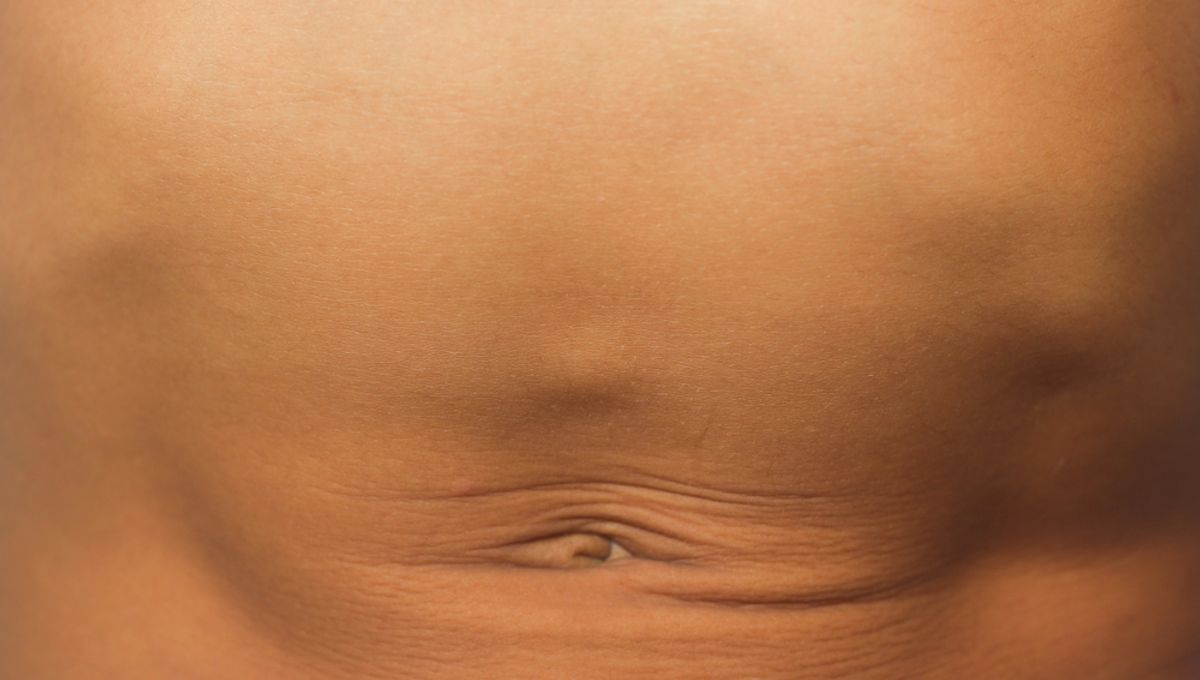
Have you ever noticed a small bump on your belly? Although it could be a multitude of different things, lumps on the abdomen can sometimes be down to hernias, of which one of the most common types is epigastric.
What is an epigastric hernia?
Hernias happen when an internal part of the body, such as the intestine, pushes through a weakened part of either the surrounding muscle or wall of tissue. Although sometimes they aren’t noticeable at all, the tissue can bulge out to form a visible bump.
Epigastric hernias happen when fatty tissue pushes through an area of the abdominal wall that’s either weakened or hasn’t formed properly, usually occurring somewhere between the belly button and the breastbone. They’re typically quite small and may only be noticed during activities that put a strain on the abdomen, like coughing or laughing.
Do they have symptoms?
The vast majority of epigastric hernias don’t have symptoms – within medicine, this is known as being “asymptomatic”. As a result, they can go undiagnosed, although they might get picked up if someone goes to their doctor concerned about a bump, or during tests like CT scans that are being run for another reason.
However, there are occasions when people may experience pain, ranging from mild to severe, in the abdomen. This is usually an indicator that the fatty tissue poking through the abdomen wall is being “strangled”; in other words, the blood supply and therefore, oxygen supply to the tissue is being cut off.
Can they be treated?
There are typically three treatment options for those with an epigastric hernia, depending on its severity and location, someone’s general health, and their level of physical activity.
Although the hernias usually don’t resolve themselves, if someone isn’t experiencing pain then treatment is usually as simple as observation – doctors will keep an eye on how the hernia progresses over time. This can be done by tracking the external size of the hernia and using imaging tests like ultrasounds or CT scans.
Where hernias do end up causing severe pain, surgery is an option. This can be elective or emergency, although it’s more likely to be emergency if medics think that the hernia has become stuck or strangled.
During surgery, doctors make an incision in the abdomen where the hernia is located and push the fatty tissue that was poking out back into place. They then either stitch up or use a combination of stitches and plastic mesh to close the hole in the abdominal wall.
What causes them to happen?
Epigastric hernias are common in babies and young children, but they can develop at any age. Their exact cause isn’t known, although there are certain factors that put someone at a greater risk of developing one.
Risk factors for developing any hernia can include heavy lifting or other strenuous activity. For epigastric hernias in adults, the primary risk factors are being overweight or having previously been pregnant; these can both put a strain on the abdominal wall and cause an existing opening to expand over time.
All “explainer” articles are confirmed by fact checkers to be correct at time of publishing. Text, images, and links may be edited, removed, or added to at a later date to keep information current.
The content of this article is not intended to be a substitute for professional medical advice, diagnosis, or treatment. Always seek the advice of qualified health providers with questions you may have regarding medical conditions.
Source Link: That Bump Above Your Belly Button Might Be An Epigastric Hernia